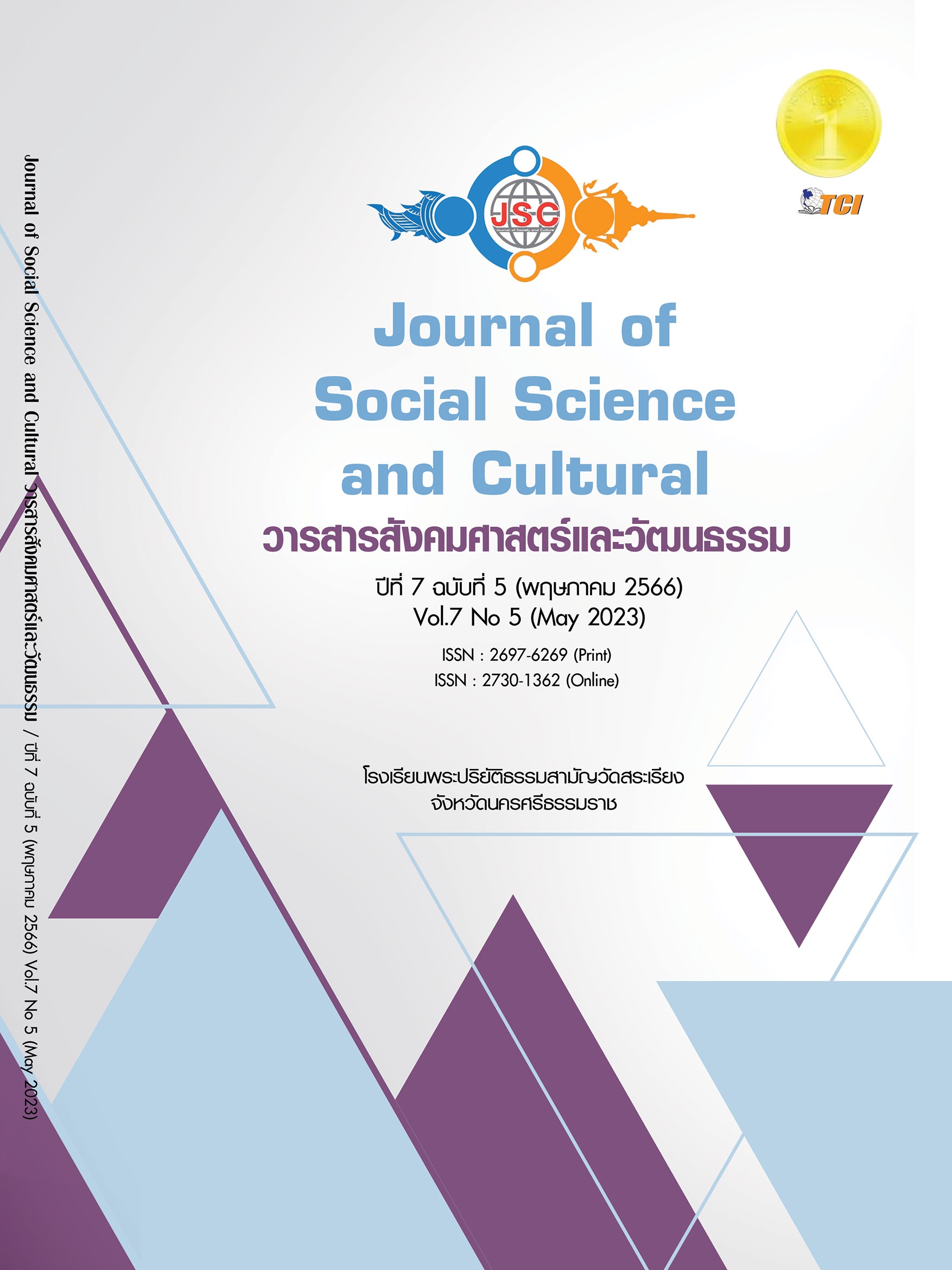THE DEVELOPMENT OF PRE-SERVICE SCIENCE TEACHERS’ PEDAGOGICAL CONTENT KNOWLEDGE DURING PROFESSIONAL TEACHER EXPERIENCE BY CONTENT REPRESENTATION AND SCAFFOLDING
Main Article Content
Abstract
This research purpose was to follow pedagogical content knowledge (PCK) of pre-service science teachers after developed by content representation (CoRes) and scaffolded. CoRes is a tool which can examine PCK of science teachers and can develop PCK for better by scaffolding designed by researcher. The research participants are pre-service science teachers who answered in CoRes and were interpreted to be high, middle, and low level. After the interpretation, it revealed that it does not show that of low level. Therefore, the participants are 4 pre-service science teachers consist of 2 High-PCK level and 2 Middle PCK level. Collecting qualitative data by interviewing pre-service science teachers before and after teaching, analyzing CoRes and lesson plan and observing the teaching of pre-service science teachers. The data were analyzed constant comparison and analytic induction methods. The results revealed that before development, High-PCK level pre-service science teachers can teach science which his contents are complete and in accordance with curriculum, considering prior knowledge and observing behavior for assessment while Middle-PCK level pre-service science teachers teach incomplete content, analyze and set the indicators inaccurately, lack prior knowledge in teaching, organize activities which do not correspond with indicators and observe behavior for learning result assessment. After developed all pre-service science teachers can: 1) design learning activities and teach by consider content which according with curriculum and add interesting contents 2)analyze indicators of curriculum and transform to aims of learning 3)emphasize with prior knowledge, engagement of content and consider regarding the easier understanding and remembering techniques 4)design activity accorded with indicators, focus on result sharing of activity and select assessment method which appeared about learning evident.
Article Details
References
Aliustaoglu, F. & Tuna, A. (2022). Analysis of the Pedagogical Content Knowledge Development of Prospective Teachers in the Lesson Plan Development Process: 4MAT Model. International Journal of Progressive Education, 18(1), 298-321.
Aydin, S. et al. (2013). Providing a Set of Research-Based Practices to Support Preservice Teachers Long-Term Professional Development as Learners of Science Teaching. Science Education,, 97(6), 903-935.
Bertram, A. (2014). CoRes and PaP-eRs as a strategy for helping beginning primary teachers develop their pedagogical content knowledge. Educación Química, 25(3), 292-303.
Eames, C. et al. (2011). CoRe: A way to build pedagogical content knowledge for beginning teachers (T. L. R. Initiative, Ed.). New Zealand: Centre for science and technology Education Research.
Ekiz-Kiran, B. et al. (2021). Development of pre-service teachers' pedagogical content knowledge through a PCK-based school experience course. Royal Society of Chemistry, 2021(2), 415-430.
Evens, M. et al. (2015). Developing Pedagogical Content Knowledge: Lessons Learned from Intervention Studies. Education Research International, 2015, 1-23.
Hume, A. & Berry, A. . (2011). Constructing CoRes—a Strategy for Building PCK in Pre-service Science Teacher Education. Science Education, 41(3), 341–355.
Kartal, T. et al. (2012). Developing Pedagogical Content Knowledge in Preservice Science Teachers through Microteaching Lesson Study. Procedia - Social and Behavioral Sciences, 46(2012), 2753-2758.
Kathy, C. (1990). Teachers’ knowledge and learning to teach. In R. W. Houston, M. Haberman, & J. P. Silkula (Eds.) Handbook of research on teacher education (pp. 291–310). New York: Macmillan Publishing Company.
Loughran, J. et al. . (2004). In Search of Pedagogical Content Knowledge in Science: Developing Ways of Articulating and Documenting Professional Practice. JOURNAL OF RESEARCH IN SCIENCE TEACHING, 41(4), 370-391.
Magnusson, S. et al. (1999). Nature, Sources, and Development of Prdagogical Content Knowledge for Science Teaching. In N. G. Lederman (Ed.), PCK and Science Education (pp. 35-132). Netherlands: Kluwer Academic Publishers.
Nilsson, P. & Loughran, J. (2011). Exploring the Development of Pre-Service Science Elementary Teachers’ Pedagogical Content Knowledge. Journal of Science Teacher Education, 23(7), 699-721.
Rohaan, E. J. et al. (2008). Reviewing the relations between teachers’ knowledge and pupils’ attitude in the field of primary technology education. Int J Technol Des Educ, 20(2010), 15-26.
Rousseau, P. (2018). Best Practices in Instructional Scaffolding. Southern Ontario: Learning & Teaching Office, Ryerson university.
Shulman, L. S. (1987). Knowledge and Teaching: Foundations of the New Reform. Havard Educational review, 57(1), 1-21.
Vygotsky, L. S. (1978). Mind in Society. Cambridge, United States: Harvard University Press.
Williams, J. & Lockley, J. (2012). Using CoRes to Develop the Pedagogical Content Knowledge (PCK) of Early Career Science and Technology Teachers. Journal of Technology Education, 24(1), 34-53.


